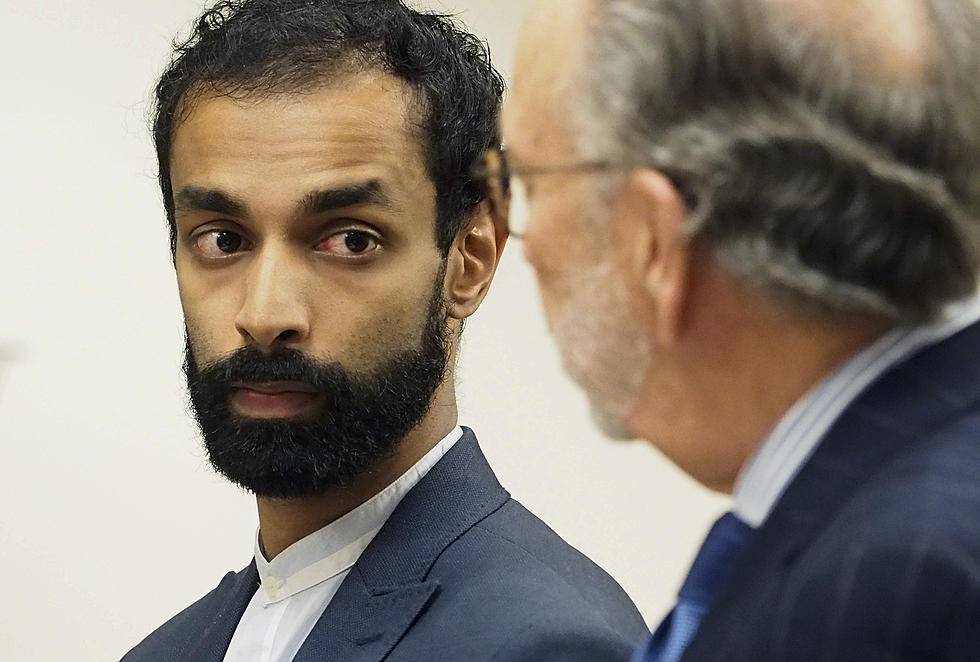
Summations Begin In Rutgers Webcam Spying Trial
A former Rutgers University student accused of using a webcam to spy on his roommate's intimate encounter with another man is a kid, not a criminal, his lawyer said Tuesday in closing arguments before stopping abruptly.
Steven Altman fell ill an hour into his final presentation to the jury, and the rest of the summation was delayed until 1 p.m.
Altman told jurors that Dharun Ravi was surprised to turn on his webcam and see his roommate in an intimate situation with another man. He emphasized that there was no recording, no broadcast and no YouTube video of the encounter.
And he said that Ravi was not acting out of hatred of his roommate or gays in general.
"If there's hate in Dharun's heart, if there's ugliness in Dharun's heart," Altman, fighting a cold and speaking with an uncharacteristically soft voice, asked jurors, "Where's there some information and some evidence to support it?"
Ravi faces 15 criminal counts, including invasion of privacy and bias intimidation. His roommate, Tyler Clementi, committed suicide by jumping off the George Washington Bridge in September 2010, days after the alleged spying.
Prosecutors are expected to make their closing arguments later in the day. Jurors are expected to start deliberating by Wednesday. They heard about 30 witnesses over 12 days of testimony in the trial. They did not hear testimony from Ravi himself, though they did see video of a statement he gave to police.
Altman spent parts of his first hour poking holes in the credibility and memory of two of the state's key witnesses, both Rutgers students who said Ravi came to their room and showed them how to access video from his webcam.
He read a text message from Ravi that contained a vulgarity that's been repeated other times in the trial. But interest in the closings meant that the word was carried live on at least two cable television outlets.
There's no dispute that Ravi saw a brief snippet of video streamed live from his webcam to the laptop of a friend in her dorm room on Sept. 19, 2010.
The friend, Molly Wei, said Clementi and his guest -- identified in the trial only by the initials M.B. -- were fully clothed and kissing at the time.
Ravi posted a Twitter message that night that concluded: "I saw him making out with a dude. Yay." Altman characterized that as an attempt to talk about something that surprised him -- an example of immaturity, perhaps, but not a criminal act.
Later, Wei showed some other students the video. They said the men had removed their shirts, and that the webstream was turned off after mere seconds. Wei was initially charged, but later entered a pretrial intervention program that could allow her to avoid jail time and a criminal record if she complies with a list of conditions.
Two days after the first incident, Clementi asked for the room alone again.
This time, Ravi tweeted: "Yes, it's happening again" and "dared" followers to connect with his computer to video chat. There was testimony that he told one friend that there was going to be a "viewing party" at Rutgers.
But there was no webcast. Ravi's lawyers say it's because he disabled his computer before Clementi had M.B. over. And witnesses placed Ravi at Ultimate Frisbee practice for most of the time he was asked to stay away from his room.
In his summation, Altman noted that none of Ravi's roughly 150 Twitter followers seemed to take action after seeing his tweets. "Not one attempt to see anything, what does it tell you? Nobody cares and nobody's taking it very seriously."
Judge Glenn Berman said Monday that some of the charges are difficult because they have not been frequently tested by higher courts.
After jurors left for the day, Berman made rulings on the instructions he will give them. But he wasn't fully confident that an appeals court would not view things differently, especially regarding the bias intimidation law. "I could be wrong," he told lawyers. "I said this statue to me is muddled. It could be written better."
The challenge for jurors could be deciding whether the laws apply to what Ravi is alleged to have done.
One of the invasion-of-privacy charges accuses Ravi of viewing exposed private parts or sex acts -- or a situation where someone might reasonably expect to see them.
Another accuses him of recording or disseminating the images to others. There's no evidence that the webstream was recorded, and witnesses said Ravi wasn't there when Wei opened the webstream for other students.
The bias intimidation charges could also be complicated. Ravi can be convicted of intimidation if he's also found guilty of an underlying invasion-or-privacy charge. Two of the four charges of that crime are second-degree crimes punishable by up to 10 years in prison.
Each of those charges says Ravi committed invasion of privacy -- or attempted to -- out of malice toward gays -- or that Clementi believed he was targeted because of his sexuality.
Prosecutors will point to his Twitter postings about his roommate and testimony that Ravi expressed some worries about having a gay roommate. They may also point out that Clementi viewed Ravi's Twitter page 38 times in the last two days of his life as evidence that Clementi believed, at least, that Ravi was anti-gay.
But defense lawyers will try to rebut that by referring to testimony from several friends of his who testified that he never said anything bad about gays generally -- and that he mostly had good things to say about Clementi.
(Copyright 2012 by The Associated Press. All Rights Reserved.)
More From New Jersey 101.5 FM









